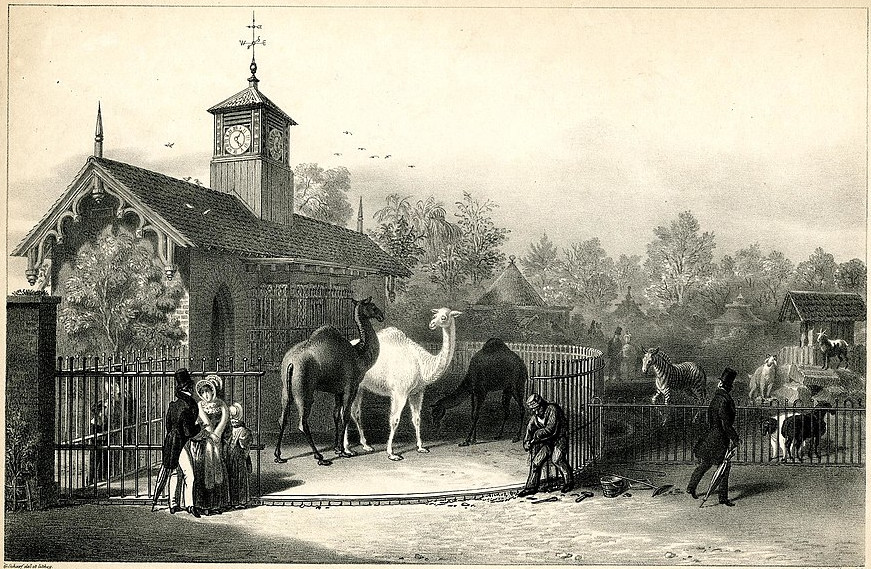
For whatever this is worth: In Samuel Butler’s semi-autobiographical novel The Way of All Flesh, “one of the most eminent doctors in London” cures young Ernest Pontifex of nervous prostration by a course of “crossing,” or change. “Crossing is the great medical discovery of the age. Shake him out of himself by shaking something else into him”:
I have found the Zoological Gardens of service to many of my patients. I should prescribe for Mr Pontifex a course of the larger mammals. Don’t let him think he is taking them medicinally, but let him go to their house twice a week for a fortnight, and stay with the hippopotamus, the rhinoceros, and the elephants, till they begin to bore him. I find these beasts do my patients more good than any others. The monkeys are not a wide enough cross; they do not stimulate sufficiently. The larger carnivora are unsympathetic. The reptiles are worse than useless, and the marsupials are not much better. Birds again, except parrots, are not very beneficial; he may look at them now and again, but with the elephants and the pig tribe generally he should mix just now as freely as possible.
“Had the doctor been less eminent in his profession I should have doubted whether he was in earnest, but I knew him to be a man of business who would neither waste his own time nor that of his patients,” writes Butler’s narrator. “As soon as we were out of the house we took a cab to Regent’s Park, and spent a couple of hours in sauntering round the different houses. Perhaps it was on account of what the doctor had told me, but I certainly became aware of a feeling I had never experienced before. I mean that I was receiving an influx of new life, or deriving new ways of looking at life — which is the same thing — by the process. I found the doctor quite right in his estimate of the larger mammals as the ones which on the whole were most beneficial, and observed that Ernest, who had heard nothing of what the doctor had said to me, lingered instinctively in front of them. As for the elephants, especially the baby elephant, he seemed to be drinking in large draughts of their lives to the re-creation and regeneration of his own.
“We dined in the gardens, and I noticed with pleasure that Ernest’s appetite was already improved. Since this time, whenever I have been a little out of sorts myself I have at once gone up to Regent’s Park, and have invariably been benefited. I mention this here in the hope that some one or other of my readers may find the hint a useful one.”
